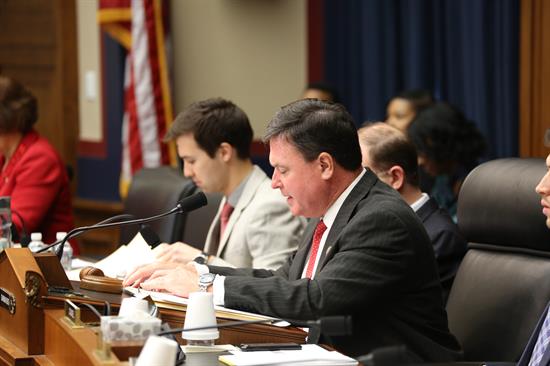

Good morning, and welcome to today’s subcommittee hearing. I’d like to thank our witness, Mr. Tony Dearman, Director of the Bureau of Indian Education, and our members for joining today’s important discussion regarding the government’s management of Native American schools.
Under the Department of Interior, the Bureau of Indian Education (BIE) is tasked with providing Native American children with a high-quality education that upholds their tribes’ traditions and culture.
Over 47,000 students in 183 elementary and secondary schools depend on this government agency to provide them with educational opportunities in a safe and healthful learning environment.
Unfortunately, so many Native American children are not receiving the education they deserve.
Over the years, the Government Accountability Office (GAO) has expressed concern regarding BIE’s ability to effectively manage the schools under its jurisdiction. In 2017, the GAO placed BIE on its High Risk List, identifying the bureau as one of several government programs and offices at risk of exhibiting a high degree of waste, fraud, abuse, and mismanagement.
This is especially alarming for me to hear because it involves children in K-12 education, the most formative and important stage in a student’s career as a learner.
Site visits have also indicated to members of the committee that the schools managed by BIE frequently fail to provide students with an environment that keeps them safe and healthy.
Three years ago, I was a first-hand witness to the inadequate school conditions Native American children are faced with. On a visit to Bug-O-Nay-Ge-Shig School in Northern Minnesota with then-Chairman John Kline, I observed the absence of basic classroom supplies like desks and paper, foundational and structural problems, and health hazards like rodent infestations.
Seeing the problems with my own eyes galvanized me to work more closely with the BIE so that we can improve conditions for these children. We must do better by these students, including ensuring access to safe schools and improved academic opportunities.
In 2014, the Secretary of Interior directed the Bureau of Indian Affairs to restructure BIE from a school operating organization to a school improvement organization. This change will reorganize BIE to function more like a state educational agency that oversees the system, rather than a local educational agency tasked with school operation.
By reorienting BIE to a role that will provide technical assistance to schools, the Department of Interior will be able to work with Congress and the GAO to rehabilitate BIE so that it’s better equipped to serve its students and improve its facilities.
According to GAO, restructuring of BIE is currently behind schedule, but it is the committee’s hope that with the leadership of the new administration, BIE will be able to accelerate its timeline to deliver better results for its schools and students.
As this committee continues to follow the implementation of the Every Student Succeeds Act and BIE’s ongoing restructuring efforts, it is important that we continue the dialogue about opportunities to better serve Native American students in attendance at BIE schools.
Today’s hearing presents such a chance to explore ideas and initiatives to improve schools and strengthen education, as well as hear from the BIE’s director Tony Dearman about what steps are being taken to restructure the bureau both quickly and effectively.
I look forward to learning from our witness about the Bureau of Indian Education and the schools under its jurisdiction, and I am encouraged that today we can make significant progress on behalf of these students. With that, I will now recognize Ranking Member Polis for his opening remarks.
To read the PDF version, click here.